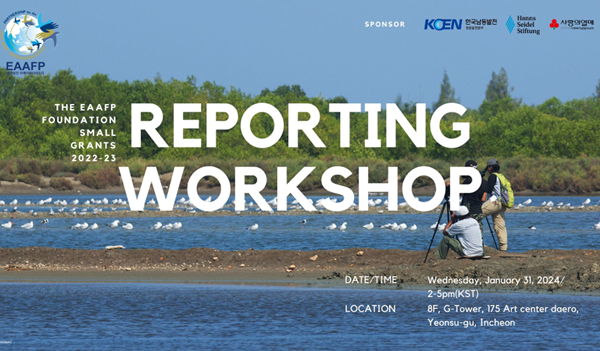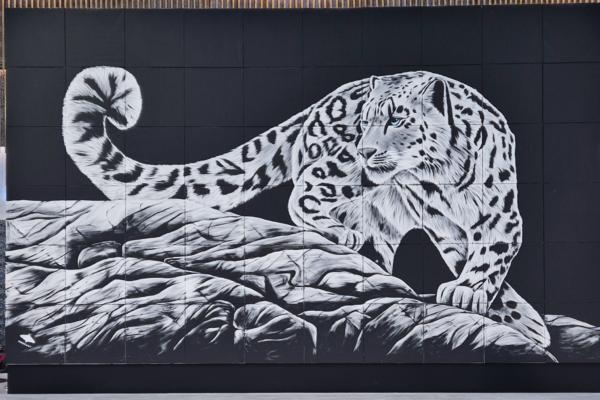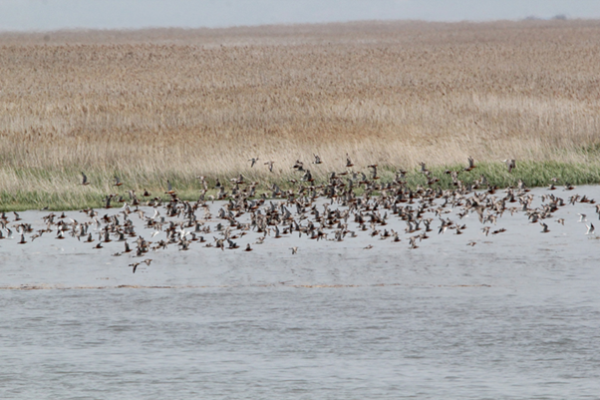Due to the COVID pandemic, many stores and facilities were temporarily closed to prevent the spread of the coronavirus infection since this spring. Seven facilities, including the Ramsar site which Wild Bird Society of Japan (WBSJ, EAAFP Partner) operates, were also closed until June. Although many facilities reopened during summer, we had to take various measures during the COVID pandemic. We would like to introduce our efforts in environmental education activities.
For visitors and school groups
We had limited the number of people who use the center. And we posted various signs to encourage people to keep a physical distancing even outdoors, and to encourage hand washing and disinfection. As there is demand of our services from schools when they reopened, we sought advice from the government and asked them how to support the schools. Following guidelines from the government, we had online meetings with the teachers and provide information about wetlands and nature. We also created a short video program that summarizes the points of nature observation and sent it to schools.
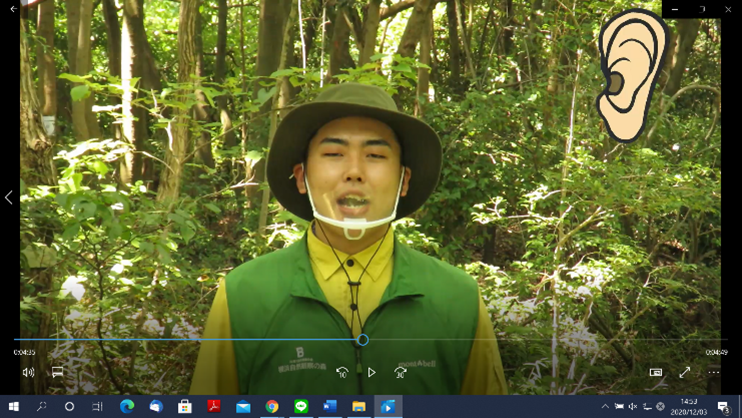
Displays
Some of the exhibits encouraged visitors to touch and check before going to observe. However, if many people touch the exhibits, there is a risk of infection. So we changed the exhibition displays in a way that people can watch and learn. For example, we hung many full-scale models of wild birds so that people can see the birds’ colors and sizes. In addition, we made a video to introduce a migratory shorebird, Whimbrel. People can scan the QR code with their cellphones and can enjoy the short video about how Whimbrel feeds.
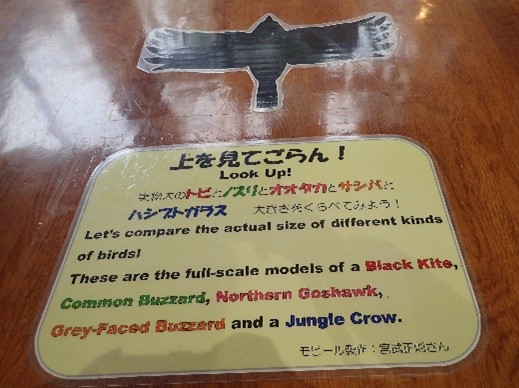 Yokohama Nature Sanctuary |
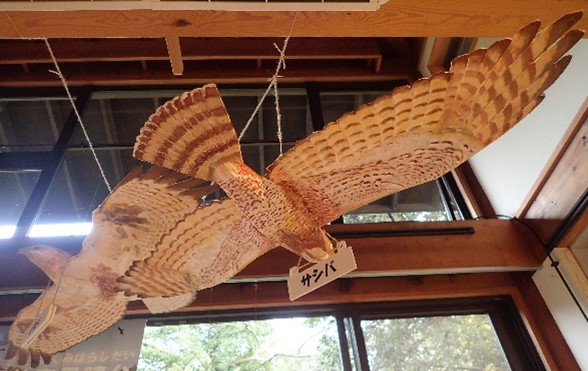 Yokohama Nature Sanctuary |
Events
WBSJ organizes many events every year. But this year, we reduced the number of participants and shortened the time. We held more lectures as well as experience and observation sessions online, including Facebook Live. It was very difficult to introduce wildlife through online media. We will consider ways to interact with people who are watching live.
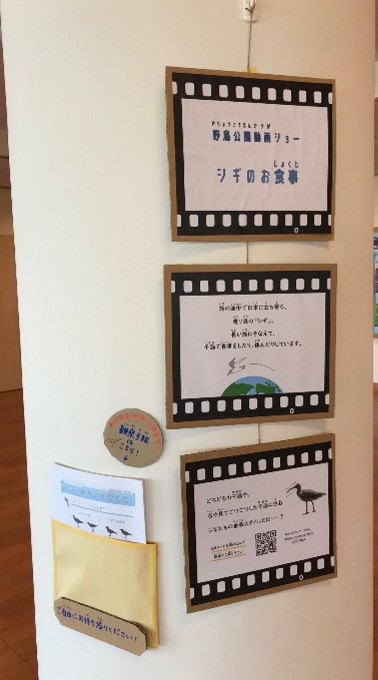 Tokyo Port Wild Bird Park |
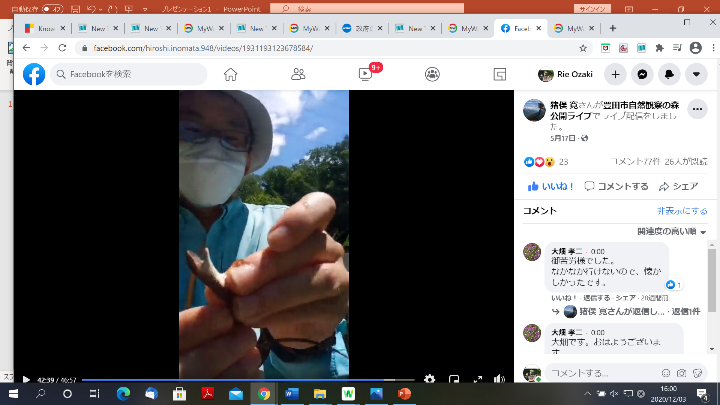 Toyota City Nature Sanctuary |
Supporting Volunteer Activities
There are many volunteers at our sites. They are very enthusiastic people and work very hard to help to conserve our nature. However, we are concerned about getting them to resume their activities at the sites because we have a lot of elderly people as volunteers. We thus created a set of rules for the activities that included infection control. For example, we check their temperature and request them to go through disinfection process before the activity. We also hold our meetings online. At first, it took a while to get everyone over 80 years old to get familiar with online meeting tools, but now everyone gets used to it. Still, there is some problem like lack of eye contact and interpersonal communication online.
There are many more new things that we have had to work on during the COVID19 pandemic. But we will continue to move forward without stopping. We would like to exchange new ideas with our partners.
Article prepared by Rie Ozaki from Wild Bird Society of Japan. Contact Email: ozaki.r@wbsj.org

